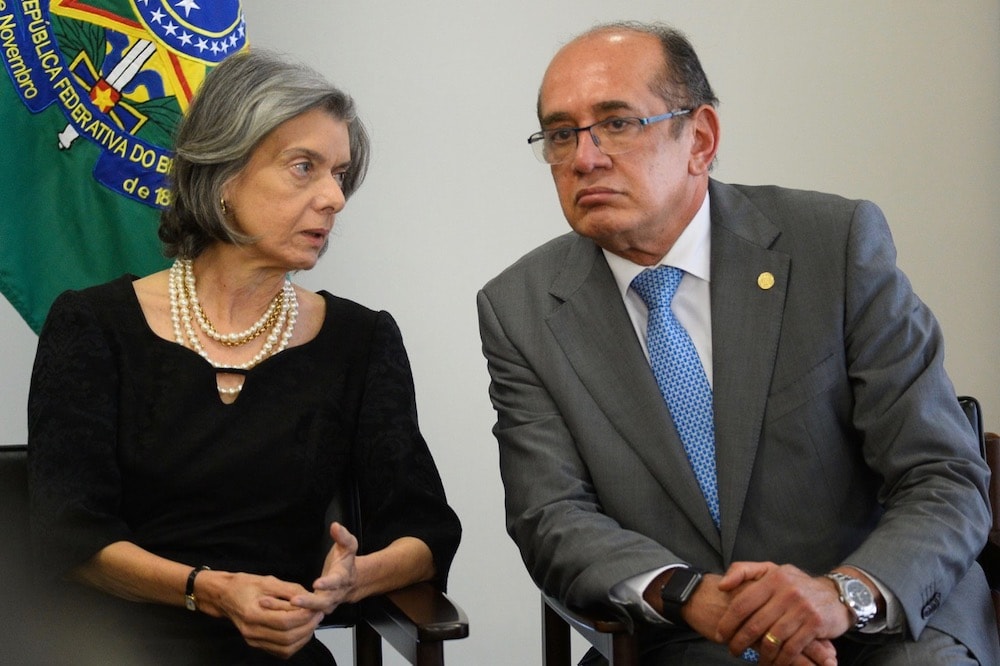The conviction of Brazilian journalist Rubens Valente, ordering him to pay a BRL 310,000 (about USD 60,000) compensation to Justice Gilmar Mendes of the Federal Supreme Court (STF), worries organizations defending press freedom.
This statement was originally published on abraji.org.br on 10 May 2022.
The conviction of Brazilian journalist Rubens Valente, ordering him to pay a BRL 310,000 (about USD 60,000) compensation to Justice Gilmar Mendes of the Federal Supreme Court (STF), worries organizations defending press freedom. The sentence was confirmed by the STF, as reported by Pública news agency on Friday (May 6). The amount is higher than all of the journalist’s assets earned during his 30-year career.
Since the case has reached the end of appeals under Brazilian law, Abraji – in partnership with two international organizations, Media Defence and Robert F. Kennedy Human Rights, and the journalist’s lawyer, Cesar Klouri – took it to the Inter-American Commission on Human Rights (IACHR). They are concerned with the failure to comply with constitutional precepts, as well as the risks that such a measure represents to the exercise of the profession in Brazil.
In addition to a decision threatening freedom of the press, attention is drawn to the speed with which the journalist was forced to pay the compensation – an amount he had to bear alone, since the publisher condemned in the case, Geração Editorial, did not express its position. Thus, at Justice Mendes’ request, Valente was considered a solidary debtor, being held responsible for the full payment of the sentence.
The Justice sued the journalist and Geração Editorial over the publication of the book “Operação Banqueiro” (or “Banker Operation,” not translated into English). In addition to obtaining compensation from the STF for BRL 310,000, Justice Mendes achieved another victory: the order that, in future issues, the entirety of the decision and the initial petition of his lawyers should appear in the book as a way of exercising his right of reply. In practice, the decision entails an increase of 30% in the book’s total pages, making its re-publication unfeasible.
Justice Mendes claims that his honor was morally harmed in the book Rubens Valente wrote in 2014 about the backstage dealings of Operation Satiagraha, which led to the arrest of banker Daniel Dantas in 2008. A 42-page chapter recalls that the minister – then Chief Justice of the STF – granted two habeas corpus to Daniel Dantas in less than 72 hours, a fact extensively reported in the press that year. The prosecution argues that the facts were presented out of context and that Valente implied the minister’s partiality in the banker’s trial.
Mendes filed the lawsuit in 2014 at the 15th Civil Court of Brasília. In 2015, Judge Valter André de Lima Bueno Araújo ruled that the compensation claim was not upheld, as he did not find in the book “Operação Banqueiro” defamatory or untrue content about Justice Mendes. In the decision, Judge Araújo cites an article by a colleague of Mendes, Justice Luis Roberto Barroso, which deals with freedom of the press and personal rights. According to him, Justice Mendes – at the time Chief Justice – was a person of public interest, who had performed acts of equal interest.
The decision of the 15th Civil Court of Brasília was reversed in higher courts. In the execution of the decision, on January 10, 2022, within only one working day, Judge João Luis Zorzo (15th Civil Court of Brasília) fully granted the request of Justice Mendes’s lawyers to execute the action. Within five days, Rubens Valente had to deposit BRL 142,965 […] Despite the attempt to contact the Justice’s lawyers, the journalist did not receive an answer about the possibility of paying in installments.
As Geração Editorial did not make the deposit, nor did it manifest itself in the execution process, the defense of Mendes requested that Valente be declared jointly liable. Without hearing from the opposing party, the judge granted the request and imposed a fine of 10%. The fine refers to the publisher’s delay in paying the indemnity. However, for the judge, Valente himself must pay it with his resources. According to the journalist’s defense calculations, the new value totals BRL 176,161 and what has already been deposited by Valente.
Abraji, Media Defence, and Robert F. Kennedy Human Rights presented a petition to the Inter-American Commission on Human Rights on December 22, 2021, highlighting the violations of the Brazilian State regarding the rights protected by the American Convention on Human Rights, such as freedom of the press, freedom of expression, guarantees and judicial protection, among others, in addition to seeking to nullify the conviction and requesting retraction and compensation from Rubens Valente.
In March 2022, the IACHR’s Special Rapporteur for Freedom of Expression, Pedro Vaca, and the IACHR President, Julissa Mantilla Falcón, welcomed journalist Rubens Valente and the petitioning organizations in Washington, D.C. They reinforced the importance of the case for freedom of the press in Brazil and provided an update on the facts from the petition.
A new update was sent to the IACHR this Monday, May 9, 2022, informing that the judge’s decision to jointly charge the journalist for the debt not assumed by the publisher was not reviewed by the judge of the 15th Civil Court.
On May 5, 2022, the dismissal of journalist Rubens Valente – who worked as a Special Reporter for the news portal UOL – was made public. Since 2020, when he joined the vehicle, Valente had published 533 articles, won 20 national and international awards, and written two books. The alleged reason for the termination was financial cuts.
This new fact complicates the journalist, who must face a conviction of approximately BRL 310,000. With the help of friends and the DF Journalists Union, an online fundraising campaign was organized to collaborate in paying the debt, as disclosed by the website Congresso em Foco.
Trial History
In addition to unprecedented speed, there are controversial details in the trial process. Rubens Valente claims that he was not heard and that independent expertise on the authenticity of the published material was not even accepted.
In February 2021, Justice Alexandre de Moraes judged in nine days the case and denied follow-up to a request in which the journalist questioned compensation for moral damages – that is, the Supreme Court would no longer appreciate the process. Valente’s defense then filed the appeal.
Even before talking to the Justices – who would have to travel to Brasilia to do so and were not there yet – the lawyers were informed that the decision had been taken.
Rubens Valente argues that in delicate cases involving judges as plaintiffs – especially those representing the highest court in the country – more thorough care is needed to ensure the fairness of the process.
In February 2019, the 3rd Panel of the Superior Court of Justice set the amount of compensation at BRL 30,000, which should be paid to Justice Gilmar Mendes by Rubens Valente and Geração Editorial. In the sentence, the judge-rapporteur, Hector Valverde, wrote that Valente “exceeded the objective information, with adjectives and offensive phrases to the appellant’s honor, mainly due to the attempt to disqualify his performance in the exercise of the judiciary.”
The STJ’s decision followed the understanding of the Federal District Court of Justice. In September 2016, a decision of the 6th Panel unanimously condemned Rubens Valente to pay compensation of BRL 30,000 “for distorting events committing offenses against the judges in the book.”
Use of Case Law
By December 2021, the STJ had already judged four proceedings citing the jurisprudence of Valente’s conviction. In addition, other 10 trials in several courts in the country adopted the jurisprudence of the journalist’s case as a parameter, including for calculating compensation for moral damages in other matters.
Actions Filed by Judges
A search on Abraji’s Ctrl X project database found 60 judicial proceedings to remove content proposed by judges, and in 81.6% of them, the request was granted. Justice Gilmar Mendes moved at least 11 lawsuits against journalists seeking compensation for moral damages.



